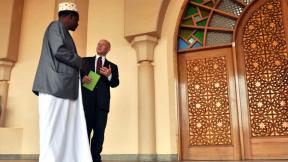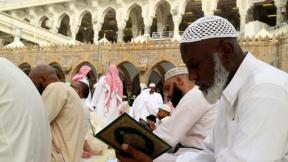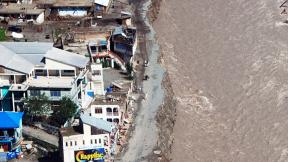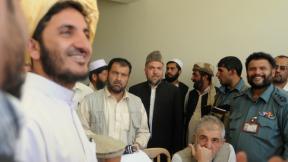
God asserts in the Quran that He created all human beings as one ummah and it is humans that created divisions within themselves. (Quran 10:19).
This belief of human unity is built into the faith structure of Islam. We believe that there is only One God who created all. We are asked to believe in all of the Prophets and not to prefer one Prophet above others in terms of respect. We are asked to believe in the earlier scriptures despite God’s criticism of people for changing those scriptures (Quran 2:285). A Muslim who does not believe in the whole set of these principles is not considered a believer by God (Quran 4: 136).
These principles are also a part of the value system taught to Muslims by the Prophet Muhammad, peace and blessings be upon him. In Islam, therefore, relationships, rights, and duties toward one’s neighbors are not limited to Muslims. There are four types of neighbors mentioned in the Quran (4:36) and they can be of any faith with no difference in rights and duties. Many references can be found in Quran about neighbors and their rights.
These principles are also a part of an Islamic social structure: justice and fairness, upholding the rights of the poor in any society, as well as charity to those in need, extend to all people without any differentiation between a Muslim and a non-Muslim.
In Madinah, the city in which the Prophet established peace between various tribal and faith groups, he negotiated and implemented a written constitution which after stating the equal religious and legal rights of each of the Jewish and pagan tribes of Madinah, repeatedly used the phrase “one ummah with the believers.” It recognizes that these other faith groups “have their religion and the Muslims have theirs.” This constitution implemented the Quranic principle of negotiating a “plurality of religions” as well as other variations among people, while keeping in mind the “oneness of humanity”, and offering “equal security”, autonomy and freedom of religion to all citizens. These are Islamic ideals that Muslims the world over learn of through sermons, Imams, teachers and mothers, who still inspire one to live by these ideals.
Faced with the triple whammy of colonial occupation, cultural hegemony, and modernization, some Muslims started formulating new and sometimes contradictory ideas to the fundamental tenets of Islam. Their products continue to inform and shape some Muslim behavior today. In many of these ideologies, the Muslim ummah was defined more within the confines of various forms of nationalism that gave more importance to the divisions of language, heredity, region, race, and religion or tribalism than to the Islamic ideal of one humanity.
It is not just Turkish nationalism or Arab Nationalism, but the understanding of the formulation of “ummah” that also gradually became more nationalistic. This understanding emphasized exclusion rather than inclusion. While Rumi, alif lailah, and the rest of classics depict the neighborhoods in the Muslim world as a large cosmopolitan culture in which ‘others’ are regular participants as neighbors, scholars, partners, heroes as well as villains, post-colonial Muslim thought defined itself with exclusive linguistic or racial boundaries and a demand for physical borders.
Nationalism in the Muslim world, unfortunately, also revived tribalism, which further worked against the inclusive cosmopolitan principles demanded by the ideals of mutual humanity and religious pluralism. This is where the challenges facing ethnic minorities become more pronounced. Whereas nationalism and tribalism have created substantial challenges for ethnic groups, faith minorities today suffer at the hands of the exclusivist religio-nationalists in the Muslim world. These are people who consider the term “ummah” to be a modern day equivalent of the term “nation.”
These religio-nationalists are not the universalists of Islam, they are its exclusivists. A non-Muslim group or a Muslim group that does not fit within their understanding of faith are judged as kafirs (disbelievers), who then should be eliminated as soon as they can find the time or opportunity to do it.
This theology has nothing to do with Prophet Muhammad’s constitution of Madinah or the Quran’s teachings of shared humanity and religious pluralism.
I call it the street theology of anger.
Photo Attribution:http://commons.wikimedia.org/wiki/File:Dome_of_rock_and_wall.jpg








Comments
Wonderful Article
Thank you, my brother, Abdul Malik Mujahid, for this beautiful article. Only when we cling to those things that unite us and make the Religion of God what binds us and not what tears us apart, are we true believers in His Message.
Location
Add new comment